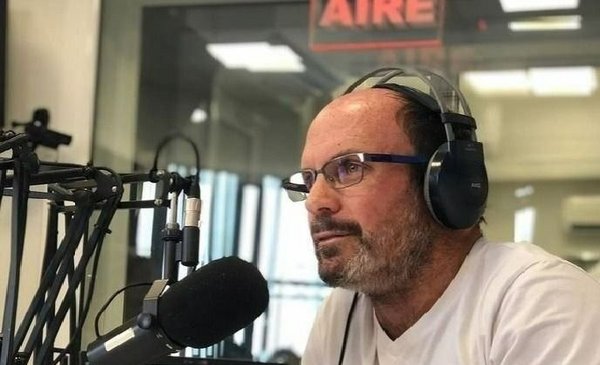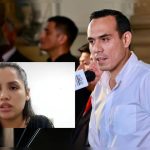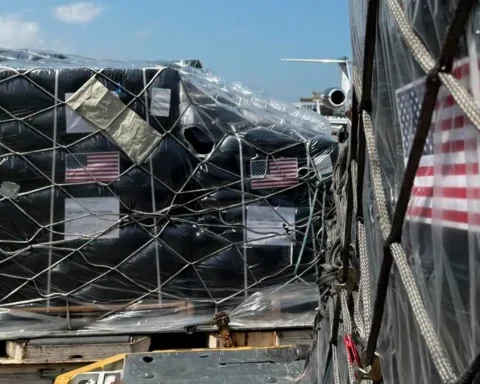In the last hours, the Inter-American Press Association (IAPA) was in charge of gathering information related to the raid Requested by the sexual crimes prosecutor, Mariana Alfaro, who sought to obtain “everything that had to do with the program” hosted by the journalist Ignacio Álvarez on Azul FM, according to Interpol officials at the time of appearing at the station.
The purpose of the judicial measure was to find out the origin of the audios involved in the rape case that the communicator broadcast on his program. For this there is also a request for a search of Álvarez’s home.
According to IAPA sources told The Observer, the approach of the organism will not be from the ethical point of view, but by the violation of the free exercise of journalism which, according to what they understand, led to the raid on the journalist and the radio station Azul FM.
In this sense, the representatives of the IAPA in Uruguay met with the journalist and also with the court prosecutor, Juan Gómez (who was not aware of Alfaro’s determination and who will speak on the matter this Monday), and are reviewing “everything that has to do with the violation of freedom of expression.”
Based on inter-American legislation and the information collected, the IAPA is expected to issue a statement in the short term. “Everyone is really worried”, assured from the agency, referring to several partners of the company who denounced the situation.
Meanwhile, Ignacio Álvarez’s lawyer, Andrés Ojeda, will appeal the prosecutor’s decision on Monday. In this regard, the lawyer stated: “We have to appeal, because there is an opportunity for the judge herself (Patricia Rodríguez) to revoke this without going to court; We can’t let this go.”
consulted by The Observer Regarding whether the case will be raised to an international organization by the defense, Ojeda indicated: “Probably yes.” Although neither he nor his client initiated actions to make this happen, they do not rule it out as a second instance after overcoming the appeal. “We are ready for what we have to do from his defense,” Ojeda remarked in relation to the possible intervention of the IAPA in the matter.
“Absolute Excess”
The lawyers Ruben Correa Freitas, Martín Risso and Juan Fagúndez agreed that the request of the prosecutor Mariana Alfaro and the endorsement of Judge Rodríguez they went against the “guarantees” that Uruguay, as a State of law, must guarantee to any journalist who carries out their work. The professionals agreed, consulted by The Observer, that in this case the action of the justice system was misguided and they qualified it as a “absolute excess”.
“It seems to me that it was an absolute excess, that a raid should not have been carried out, that it violates important international guidelines and criteria. The prosecutor was wrong and the judge was wrong,” said constitutionalist Martín Risso. “Journalists have the right to preserve the anonymity of their sources. That is where the prosecutor and the judge were wrong. There is no doubt that they were wrong,” he insisted.
Meanwhile, constitutional law professor Ruben Correa Freitas explained that, by law, “the independence of journalists must always be protected,” which, in his opinion, did not happen in this situation. “I claim the sacred right of the most unrestricted freedom of expression of thought, which is key to the democratic state and the rule of law, which goes hand in hand with freedom of the press. There is freedom to express thought, but the limit is the morality, the customs and the rights of others”.
Correa Freitas mentioned article 29 of the Uruguayan constitution, which refers to the “widest freedom of the press”, to underline that Álvarez’s right was violated as a result of the police intervention. “I am very concerned about the problem of the raid on Azul FM and on the journalist’s private home. I think we are at the limit in relation to freedom of the press. It causes me great concern because in a state of law and in a democratic country like Uruguay, the freedom of the press and of the media – radio, television, newspapers – must be protected and protected. In addition, there is a right that all journalists have, which is to keep their sources who give them the information secret, ” Indian.
The lawyer maintained that although he is “respectful” and “careful” with justice, the measure was “inconvenient” for him. Instead, he believes that it would have been preferable to summon him to testify. “I believe that the raid is not possible, unless the justice system was looking for another type of crime,” he added.
The situation brought lawyer Juan Fagúndez back to the times of the dictatorship and on his Twitter account he wrote: “Search warrant for a radio station looking for material from a journalistic chronicle. Not only does it take me back to the 70s but it is a crime.”
This was exemplified, for his part, by Risso, who compared the episode with other events that occurred in Venezuela and Nicaragua: “What was done was an absolute excess. Those things happen in the Nicaragua of (Daniel) Ortega, not in Uruguay. It was horrible and cannot be justified.”
The specialists recalled that journalists have the “right to preserve the anonymity of their sources” and insisted that the judge’s decision attempted to corrupt that norm. “That search warrant for me can even become a crime. It is illegal for one to give a search (in those conditions). Now everyone is looking at the prosecutor. She can ask for a basket of black eggs if she wants. He The issue is the judge who gives it to him. This cannot happen again. It is very serious,” concluded Fagúndez.
political reactions
The issue soon exploded in the local public sphere. Different political actors reacted to the raid and questioned the actions of the Justice.
The secretary of the Presidency, Álvaro Delgado, said in dialogue with Telenoche that the issue caused him concern. “I am very cautious and careful with the freedom of the press; I am looking at it with concern,” he acknowledged. Defense Minister Javier García expressed himself along the same lines, assuring that “it is a decision that is respected,” but that he did not share it. “Freedom of the press, freedom of expression and the right to work are very important elements that must be respected and cared for.”
For his part, the Minister of Work, Pablo Mieres, expressed his surprise and rejection: “The raids arranged by the Prosecutor’s Office at the headquarters of a media outlet and the house of a journalist are very serious events that affect freedom of expression.”
Similarly, Senator Guido Manini Rios, leader of Cabildo Abierto, wrote: “I think this is very serious,” and accused the Justice of acting under pressure and political bias. “The speed with which ‘Justice’ acts on certain issues, in which a political party exerts undue pressure, is striking. Years ago we denounced the bias of some judges and prosecutors, and many were horrified,” he tweeted.
In his account on the same network, the Colorado deputy Ope Pasquet considered that “the law says that journalists have the right to keep their sources of information secret. That right is an empty shell if the journalist’s cell phone, computer or papers or files can be seized. I believe that in the Álvarez case , Justice exceeded”.
The nationalist senator Grace Bianchi She said in an interview with 970 Noticias (Universal radio) that she was “shocked.” “I never thought that it would reach these extremes,” he said about the court order, and stated that the situation “confirms” previous statements he had made, in which he stated that the Judiciary was “infiltrated”.
Meanwhile, in the ranks of the Broad Front there were different reactions.
The Frente Amplio deputy Micaela Melgar, one of those responsible for the complaint against Álvarez, celebrated the action of Justice. “Excellent institutional response from the Prosecutor’s Office on this issue,” he tweeted. Instead, the president of the Broad Front, Fernando Pereira, He said this Saturday at a press conference that one of the elements that generated “more doubts” about the actions of the Judiciary was the request for the seizure of the cell phone of journalist Ignacio Álvarez.
The mayors of the Frente Amplio Yamandú Orsi and Carolina Cosse were consulted this Saturday. At a press conference, the Montevideo mayor avoided giving a statement, while her peer from Canelones made known her discomfort regarding the decision of the prosecutor Mariana Alfaro, endorsed by Judge Patricia Rodríguez.
Asked about the facts, Cosse said: “It is a matter of Justice. I do not position myself.” When asked if she considered that guarantees were given that freedom of expression would not be violated, the community leader replied: “I am not going to analyze when Justice decides to intervene in an issue, because I believe in the separation of powers, which is the basis of a Republic”.
His colleague from Canelones differed. “I don’t like the precedent it sets. I am very respectful and the subject of the media must be taken care of very much. makes me noise”. The Canarian hierarch added: “It’s a signal that, from the guts, I tell you that I don’t like it. Maybe when the result is out I’ll tell you: ‘I was wrong’. But the signal makes me noisy”.
















